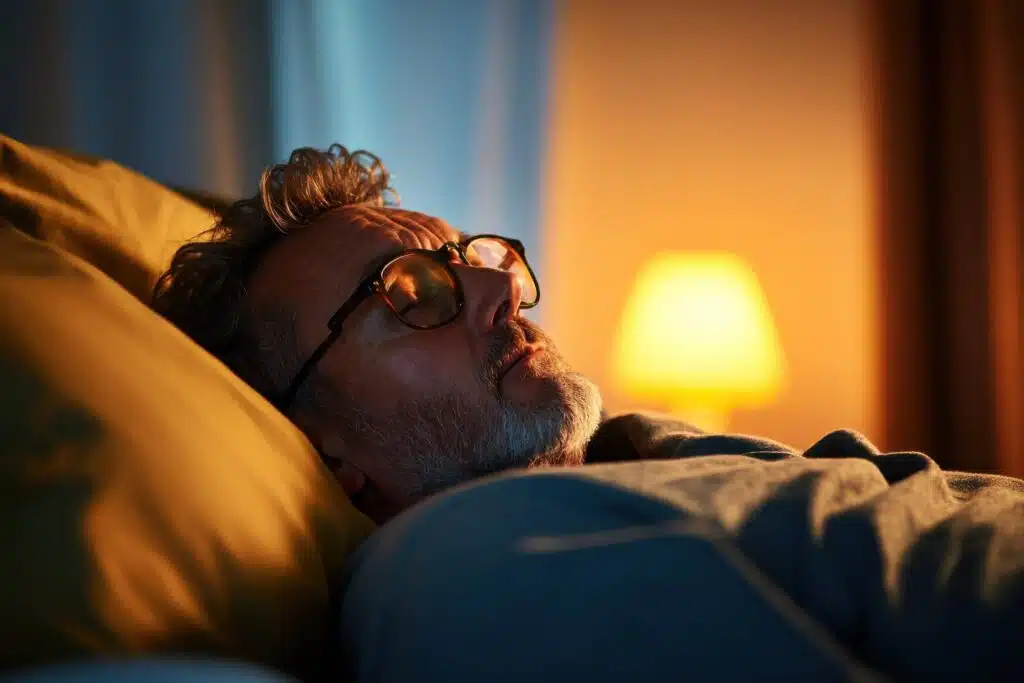Sleep is essential for your overall health, but for many people, getting quality rest is harder than it should be. If you or your partner snore loudly, wake up gasping for air, or feel exhausted even after a full night’s sleep, you may be experiencing a condition called sleep apnea. At SD Sleep Center in San Diego, our team helps patients understand and manage sleep apnea through personalized, comfortable solutions designed to improve both sleep and overall wellness.
What Is Sleep Apnea?
Sleep apnea is a sleep disorder characterized by repeated interruptions in breathing during sleep. These pauses—called apneas—can last from a few seconds to over a minute and may occur dozens of times per night. When breathing stops, oxygen levels drop, causing your brain to briefly wake you up to resume breathing. These micro-awakenings often go unnoticed but prevent the deep, restorative sleep your body needs.
Most people associate sleep apnea with snoring, but not everyone who snores has the condition. The difference lies in what happens during those pauses—your airway collapses or becomes blocked, disrupting normal airflow. Over time, untreated sleep apnea can affect cardiovascular health, metabolism, and daytime functioning.
Common symptoms include:
- Loud or chronic snoring
- Waking up gasping or choking
- Morning headaches or dry mouth
- Excessive daytime fatigue
- Difficulty concentrating
- Irritability or mood changes
If you experience several of these symptoms, it’s important to talk to a sleep apnea dentist in San Diego or a qualified sleep specialist for an evaluation.
What Are the Types of Sleep Apnea?
There are three main types of sleep apnea, each with different causes and treatment approaches:
Obstructive Sleep Apnea (OSA)
The most common form, obstructive sleep apnea occurs when the muscles at the back of the throat relax excessively during sleep. This relaxation causes the airway to narrow or close, interrupting breathing. When oxygen levels drop, your brain briefly wakes you up to reopen the airway, often with a snort or gasp.
Central Sleep Apnea (CSA)
Unlike OSA, central sleep apnea isn’t caused by a physical blockage. Instead, it results from the brain failing to send proper signals to the muscles that control breathing. This type is less common and is often linked to neurological conditions, heart disorders, or certain medications.
Complex (Mixed) Sleep Apnea
Some patients experience a combination of both obstructive and central sleep apnea, known as complex sleep apnea. In these cases, symptoms may persist even when the airway obstruction is treated, requiring more specialized management.
Understanding which type you have is essential for determining the most effective treatment approach.
Sleep Apnea Risk Factors
Sleep apnea can affect anyone, including children, but some factors increase your likelihood of developing it. Recognizing these can help you take preventive action or seek timely care.
- Anatomy: A narrow airway, enlarged tonsils, or a large tongue can make airway blockage more likely.
- Weight: Excess weight, especially around the neck, can compress the airway during sleep.
- Age and Gender: Middle-aged men are statistically more prone, though women’s risk increases after menopause.
- Family History: Genetic traits like facial structure or airway anatomy may predispose you to sleep apnea.
- Lifestyle Factors: Smoking, alcohol consumption, and sedative use relax the muscles of the throat, increasing obstruction risk.
- Medical Conditions: Nasal congestion, allergies, or conditions like hypothyroidism and high blood pressure may contribute to airway issues.
It’s important to remember that even healthy individuals can develop sleep apnea, particularly if they have anatomical factors that limit airflow.
How Is Sleep Apnea Diagnosed?
A proper diagnosis begins with a comprehensive sleep evaluation. At SD Sleep Center, our team collaborates with medical sleep specialists to ensure accurate testing and diagnosis.
Step 1: Initial Consultation
The process typically starts with a discussion of your symptoms, sleep patterns, and medical history. If your dentist suspects sleep apnea, you may be referred for a sleep study.
Step 2: Sleep Study (Polysomnography)
This test can be done in a sleep lab or at home using specialized equipment. Sensors monitor your breathing patterns, oxygen levels, heart rate, and sleep stages throughout the night. The data helps determine whether you have sleep apnea and how severe it is.
Step 3: Diagnosis and Treatment Planning
Once diagnosed, your sleep specialist or sleep apnea dentist in San Diego will discuss your results and recommend treatment options tailored to your needs and comfort level.
How Is Sleep Apnea Treated?
The goal of treatment is to restore normal breathing during sleep and prevent interruptions that impact rest and health. Treatment recommendations vary based on the type and severity of sleep apnea, as well as patient preference.
Oral Appliance Therapy
For many patients with mild to moderate obstructive sleep apnea, an oral appliance is a simple, effective solution. These custom-made devices, similar to a mouthguard, reposition the jaw slightly forward to keep the airway open during sleep. Many patients prefer oral appliances because they are non-invasive, portable, and comfortable compared to bulky machines.
As a leading sleep apnea dentist in San Diego, SD Sleep Center specializes in custom oral appliance therapy designed for long-term comfort and effectiveness. Each appliance is precisely fitted to your bite and adjusted to ensure optimal airflow while you sleep.
Continuous Positive Airway Pressure (CPAP)
For moderate to severe cases, CPAP therapy remains a common treatment. A CPAP machine delivers a constant stream of air through a mask, keeping the airway open. While effective, some patients find it challenging to use consistently due to discomfort or noise. For those unable to tolerate CPAP, oral appliances or combination therapy may be recommended.
Lifestyle and Behavioral Adjustments
Certain lifestyle changes can significantly improve symptoms:
- Maintaining a healthy weight
- Avoiding alcohol or sedatives before bed
- Sleeping on your side instead of your back
- Managing nasal allergies or congestion
Your dentist and sleep team can help you incorporate these changes for better results.
Advanced and Surgical Options
In severe or complex cases, surgical procedures may be considered to remove tissue, reposition structures, or address nasal obstructions contributing to airway collapse. These are typically explored only after conservative options have been exhausted.
Why Dental Professionals Play a Key Role
You may not think of your dentist when it comes to sleep disorders, but the anatomy of your mouth and jaw plays a major role in breathing during sleep. Dentists with advanced training in sleep dentistry can identify structural risk factors and provide custom oral appliances that effectively manage sleep apnea without the need for invasive treatment.
At SD Sleep Center, our dentists combine clinical expertise with compassion. We understand that every patient’s situation is unique, and we take time to explain each step—from diagnosis to appliance fitting—so you feel confident in your care.
The Importance of Treating Sleep Apnea
Leaving sleep apnea untreated doesn’t just cause fatigue—it can have serious long-term health effects. Repeated drops in oxygen can strain your heart and increase your risk of high blood pressure, stroke, heart disease, and type 2 diabetes. It can also contribute to mood disorders, poor concentration, and reduced quality of life.
By restoring healthy breathing, treatment can improve:
- Energy and alertness
- Memory and focus
- Mood and emotional balance
- Heart and metabolic health
Many patients also notice their bed partners sleeping better, thanks to reduced snoring and nighttime disturbances.
When to See a Sleep Apnea Dentist in San Diego
If you suspect you may have sleep apnea—or if your partner notices loud snoring or pauses in your breathing—don’t ignore the signs. Schedule a consultation at SD Sleep Center. Our team can help determine whether an oral appliance or other solution is right for you.
San Diego residents from Mission Valley, La Jolla, Pacific Beach, and nearby areas trust our practice for compassionate, patient-focused care. Whether you’ve been diagnosed recently or are seeking an alternative to CPAP therapy, we’ll work closely with you and your medical provider to find the best path to restful sleep.


